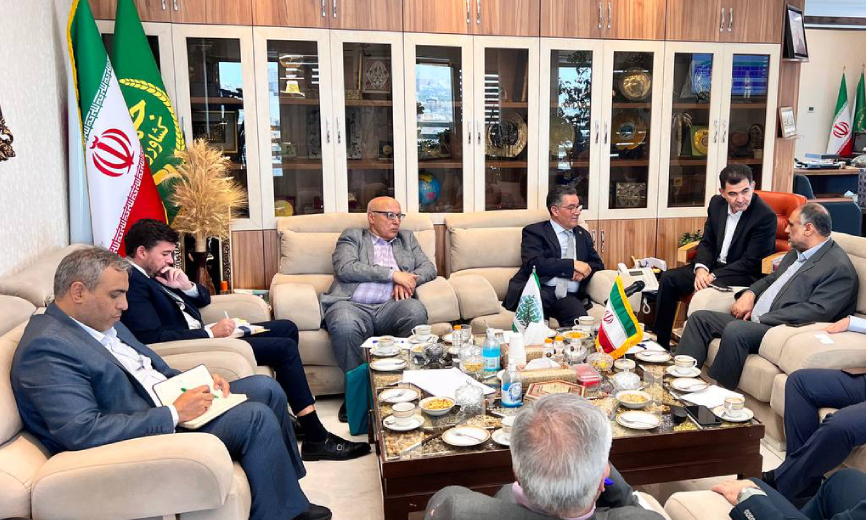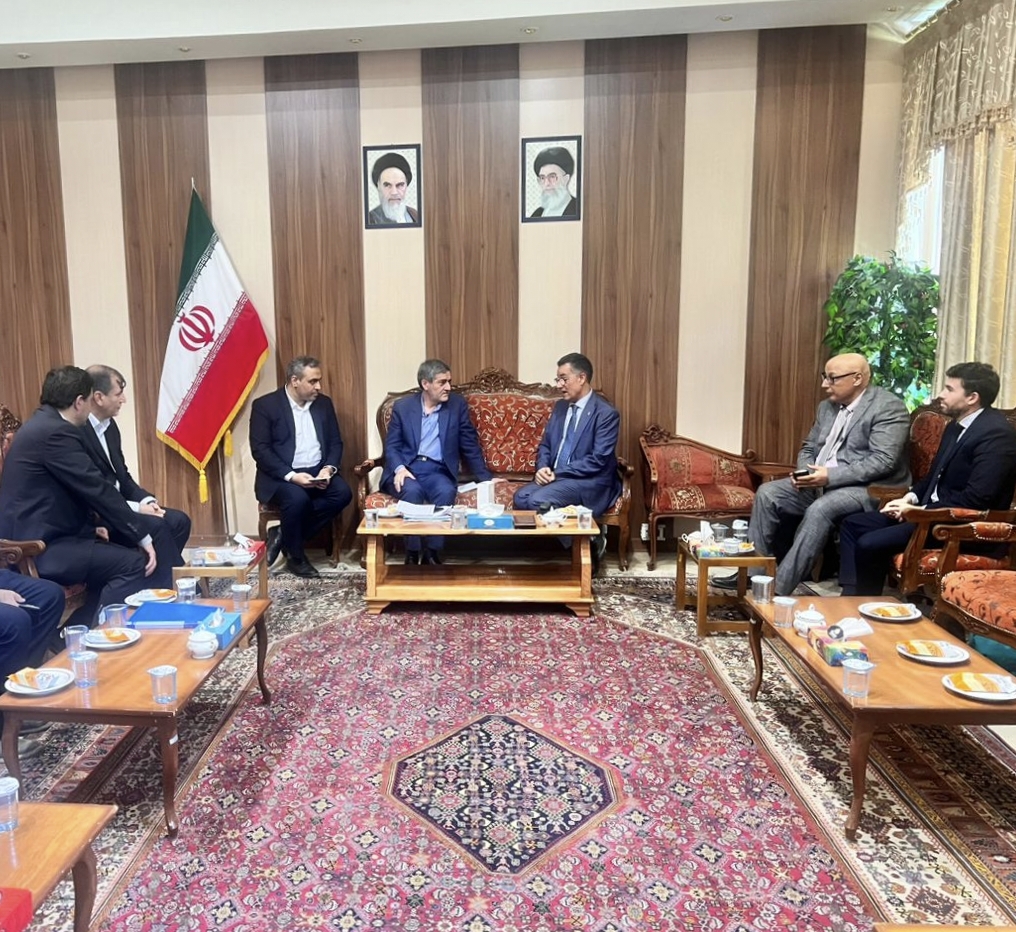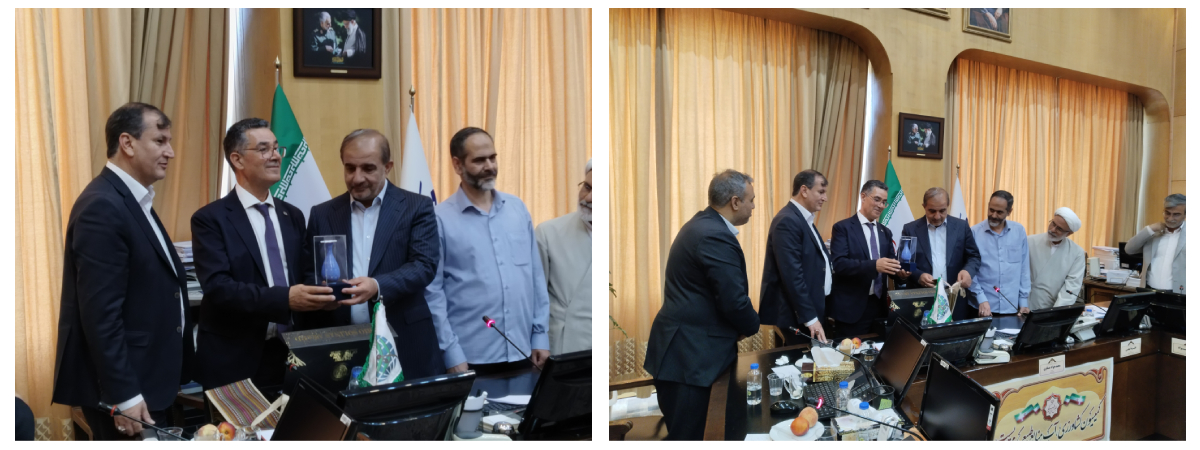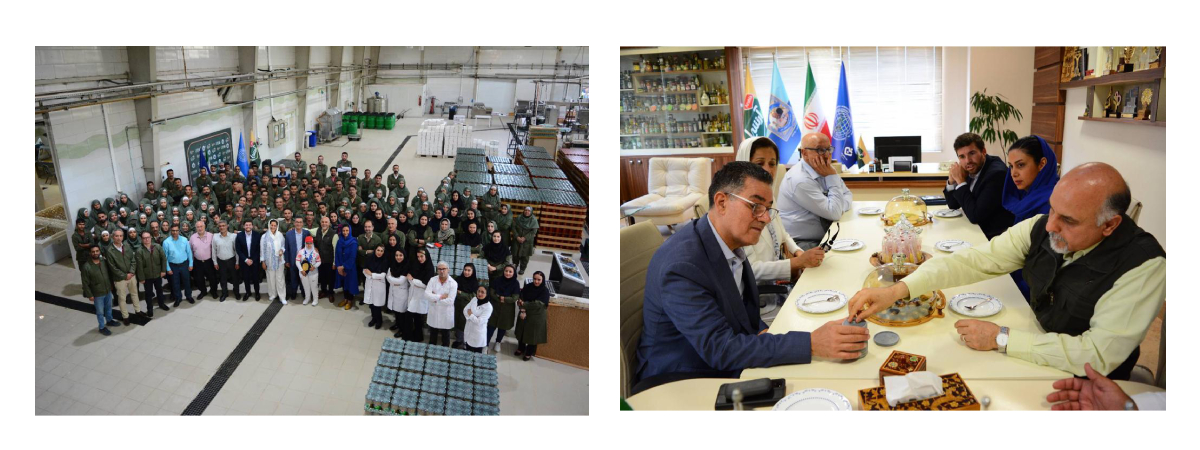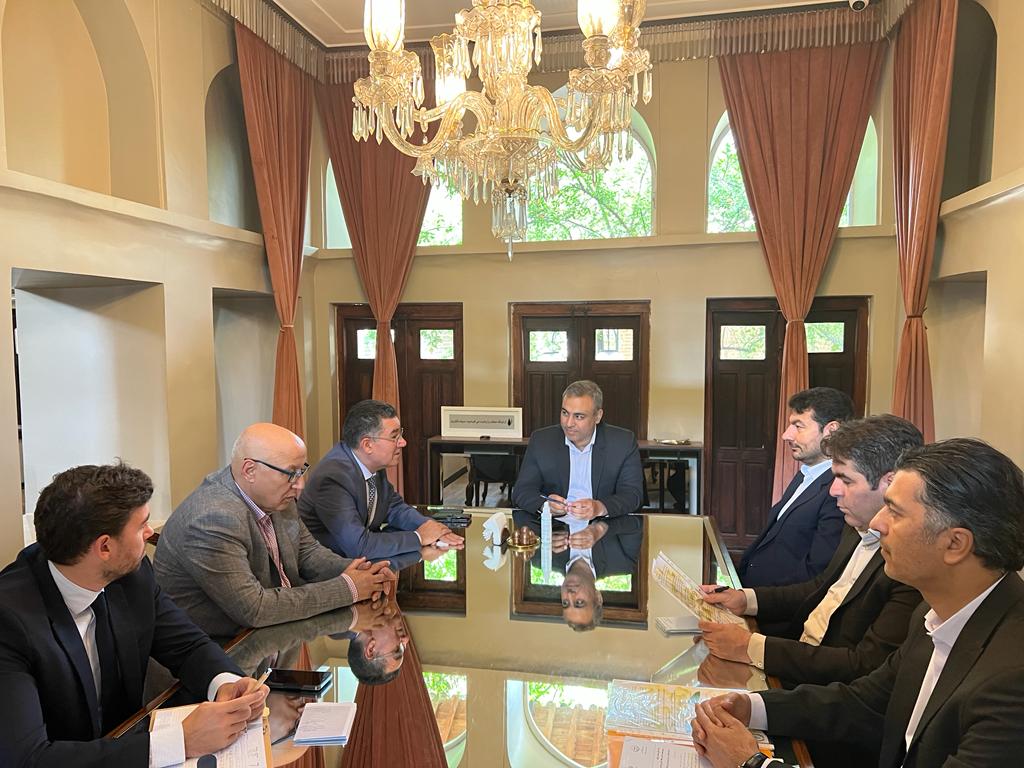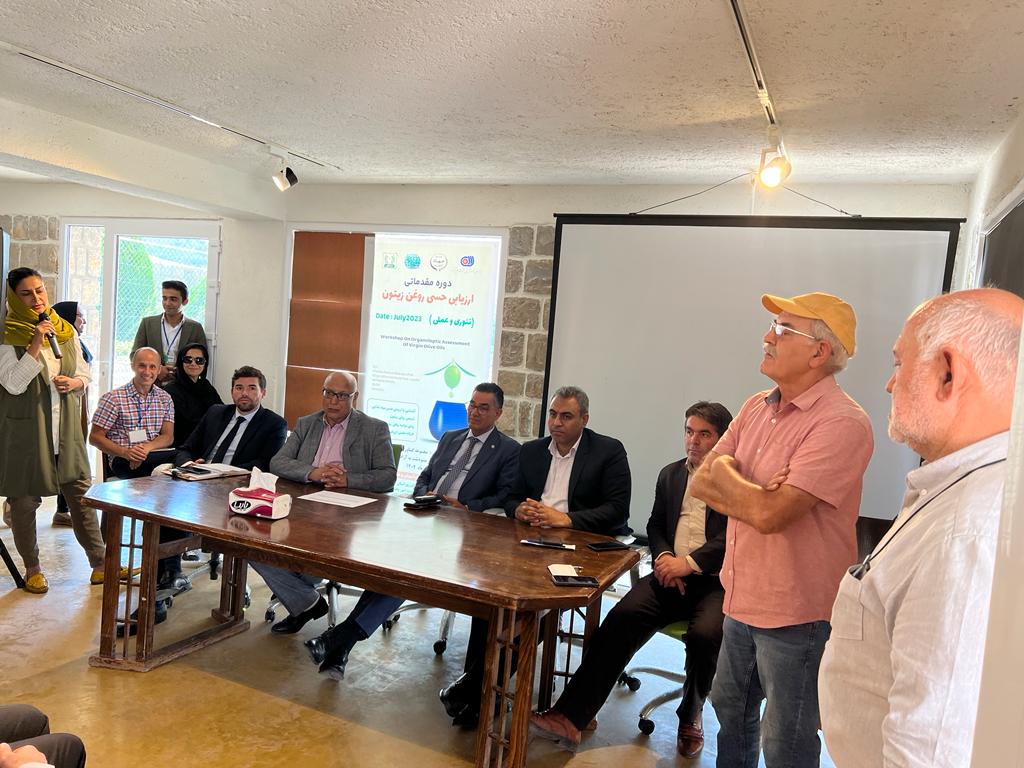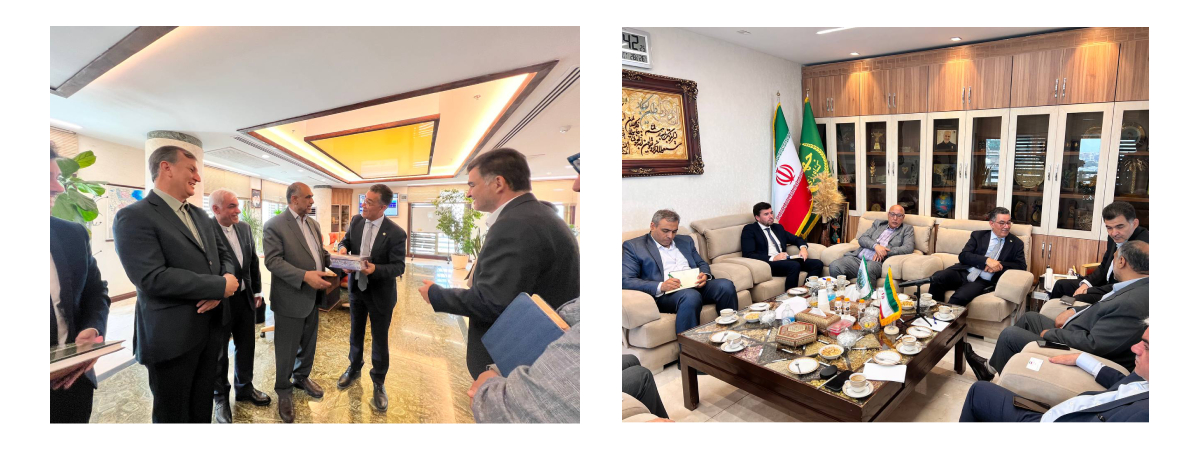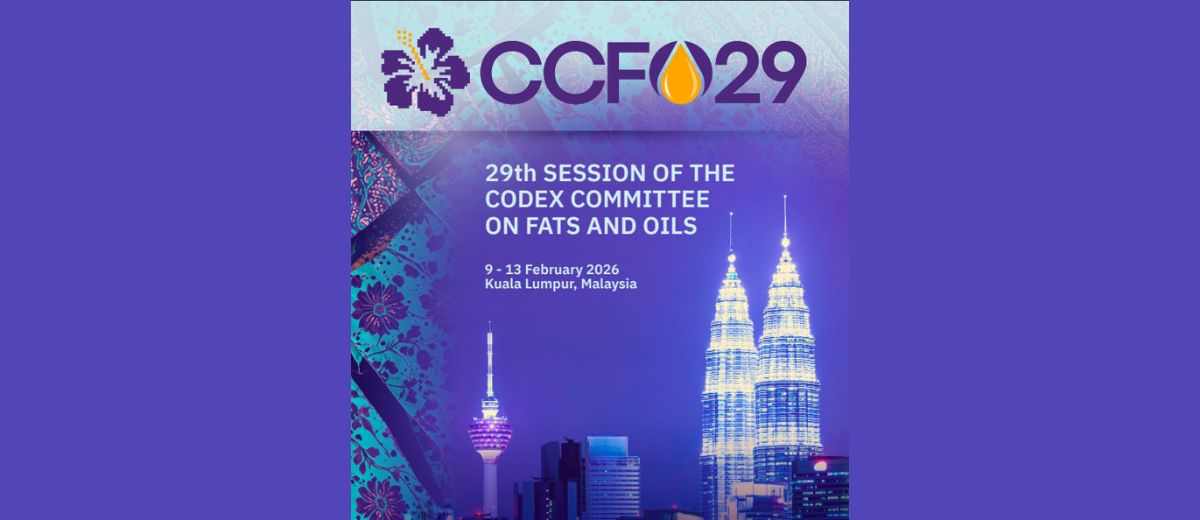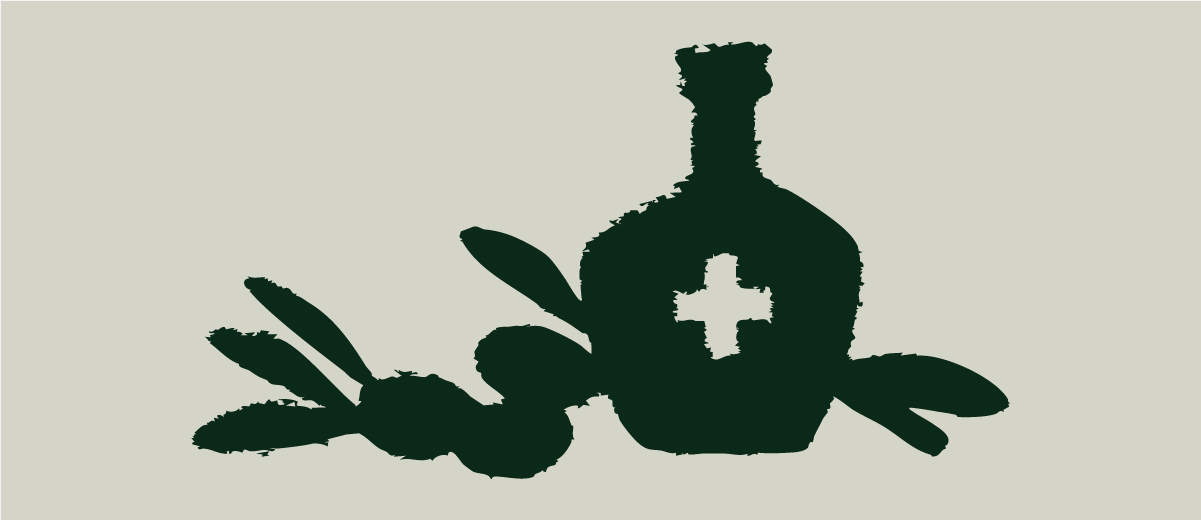A delegation from the IOC Executive Secretariat, comprising the Organisation’s Executive Director, Abdellatif Ghedira, the Head of the Olive Growing, Olive Oil Technology and Environment Unit, Lhassane Sikaoui, and the Head of the External Relations Department, Andoni Olano, paid an official visit to the Islamic Republic of Iran from 7 to 16 July 2023. The delegation was accompanied by the expert Plácido Pascual Morales, head of the official tasting panel of the Córdoba laboratory (Spain).
Iran shares many geographical and historical features with Mediterranean countries, where the main known olive cultivars are found. In this eastern Mediterranean country, the cradle of civilisation and supposed birthplace of the olive tree, religious hymns dating back two thousand years make reference to the olive tree, and the presence of olive groves in the country’s main olive-growing region (Roudbar) has been attested for nine hundred years. Today, with more than 103,530 hectares devoted to olive growing – 62,118 of which are dedicated to olive oil production – and 10,500 tonnes of olive oil produced in the last crop year (2021/22), Iran is one of the world’s leading olive-growing countries. The olive tree is a major source of employment in Iran, generating more than 12 million working days. Most of the olives grown in Iran belong to 10 traditional cultivars (Mari, Zard, Rowghani, Gelooleh, Shengeh, Khormazeitoon, Khara, Dakal, Dezful and Fishomi), but foreign varieties can also be found in intensive or super-intensive plantations, including Arbequina, Koroneiki, Manzanillo and Coratina.
The main olive-growing areas in Iran are located in the provinces of Guilan, Golestan and Zandjan in the north, and in Fars and Khouzistan in the south-west of the country. These are arid mountainous areas with a continental climate, cold winters and hot, dry summers, where rainfall is generally less than 200 mm per year. This explains why the vast majority of olive groves are irrigated using various techniques, in particular a system of terraces and stone canals (jub) that allow for regular irrigation using spring water from the mountains. Olive farms are generally large (over 50 hectares on average) and less than 50 years old.
Less than 30% of the olives harvested are used to produce olive oil, the rest being mainly used to cater for the widespread local consumption of table olives (51,500 tonnes in 2021/22). As Iranian olive oil production is not sufficient to cover domestic consumption (16,000 tonnes in 2021/22), the country is resorting to imports (5,500 tonnes in 2021/22), notably from Türkiye, Syria, Spain and Italy.
The mission of the IOC representatives began in the city of Shiraz, capital of the province of Fars in the south-west of the country, where the IOC Executive Director opened a workshop devoted to improving the quality of olive oil. This event took place in the presence of the Head of the Iranian delegation to the IOC, Javad Mirararb, representatives of the agricultural sector from the province of Fars and the city of Shiraz, and the head of the official panel of the Córdoba laboratory, Plácido Pascual Morales.
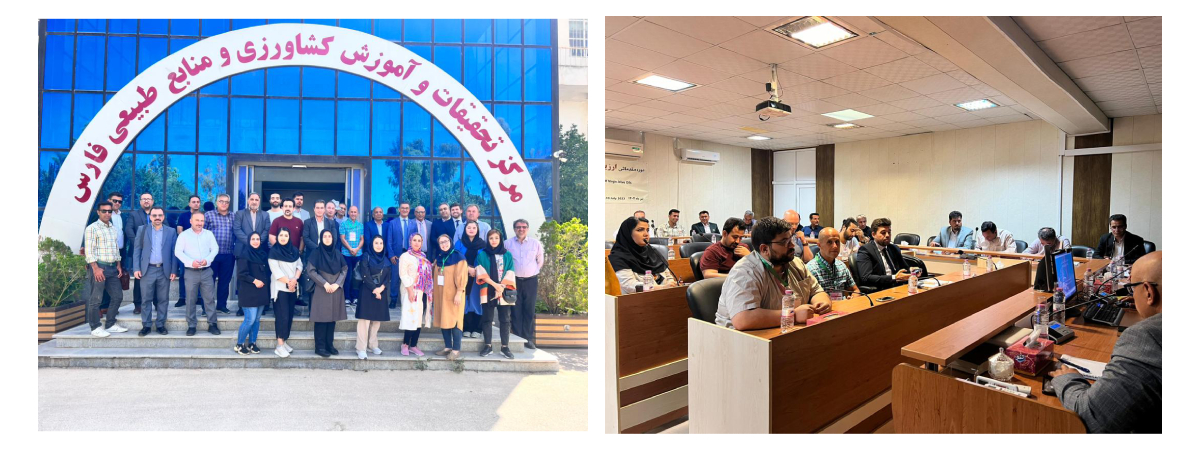
The delegation then took part in the inauguration of an experimental olive grove dedicated to studying the adaptability of different olive varieties, in which participated Mohammad-Mehdi Boroumandi (Iran’s Deputy Minister of Agriculture), Mohammad Reza Taheri (Head of the Horticulture Research Institute), Javad Mirararb (Head of the Iranian delegation) and the Director of the Agricultural Organisation of the of the province of Fars.
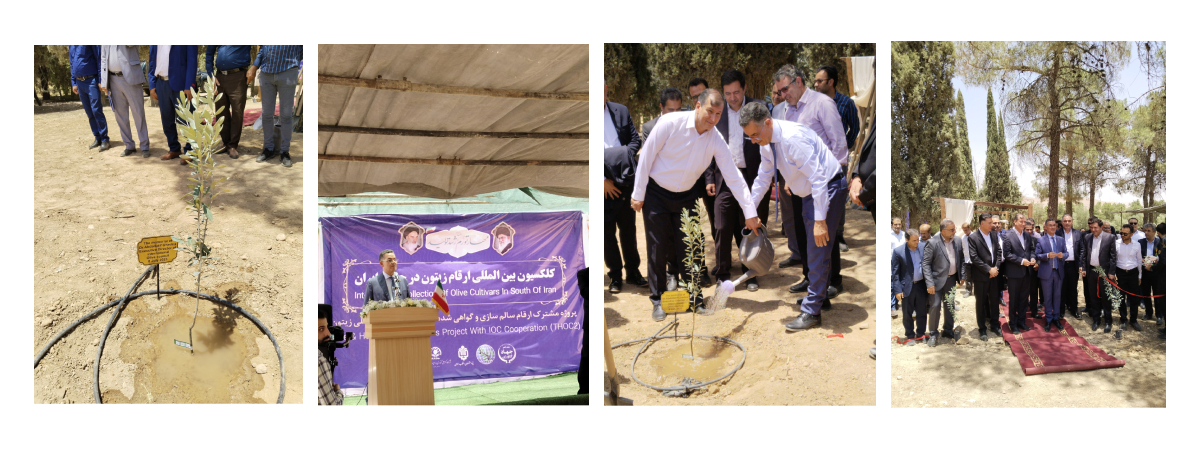
At the end of the day, the IOC delegation met with officials from the province of Fars, where they were welcomed by Mohammad-Hadi Imanieh (Governor General of the province of Fars), Mohammad-Mehdi Boroumandi (Iran’s Deputy Minister of Agriculture) and Javad Mirararb (Head of the Iranian delegation).
On the second day, Sunday 9 July, the delegation returned to Tehran and met with Mehdi Safari (Deputy Foreign Minister for Economic Diplomacy – Ministry of Foreign Affairs), Ali Chegini (Director General for Diplomatic Affairs), Mohammad-Mehdi Boroumandi (Iran’s Deputy Minister of Agriculture), Homan Fathi (Director General for the International Bureau – Ministry of Agriculture) and Javad Mirararb (Head of the Iranian delegation).
The IOC officials were then received by representatives of the Iranian Parliament’s Agriculture, Water, Natural Resources and Environment Committee, including Mohammad Javad Askari (Chairman of the Committee), Mohammad-Mehdi Boroumandi (Iran’s Deputy Minister of Agriculture) and Javad Mirararb (Head of the Iranian delegation).
On 10 and 11 July, the IOC delegation travelled to Mashhad in north-east Iran, capital of the province of Khorassan Razavi, more than 900 km east of Tehran, where it was received by Alireza Nabi, promoter of the Arshia Olive project.
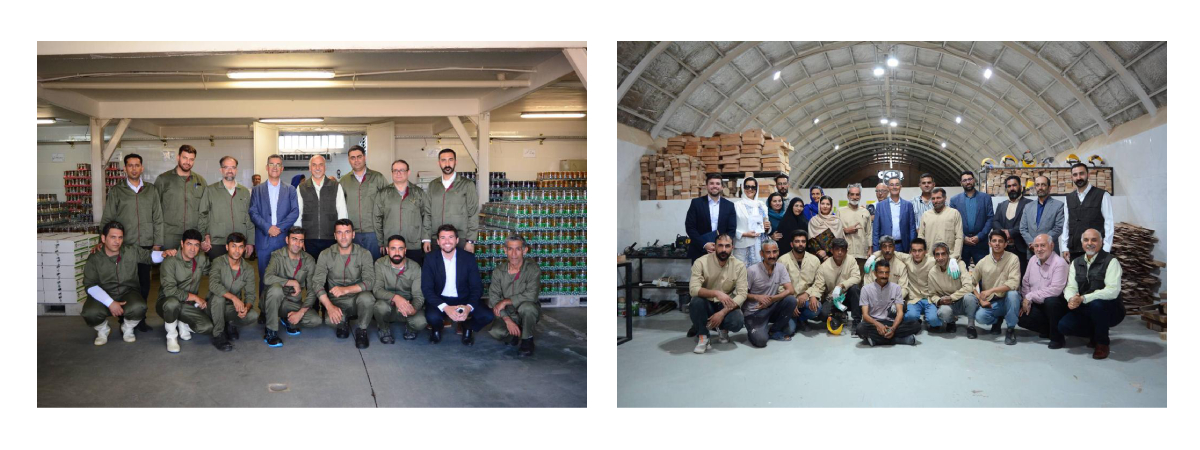 The mission continued on Wednesday 12 July in Golestan, a province covering more than 20,000 km² in north-eastern Iran, along the border with Turkmenistan. IOC officials met with provincial authorities and representatives of the olive sector, including the Head of the Golestan Provincial Agricultural Organisation, the Head of the Golestan Horticulture Department, the Head of Golestan Plant Production Affairs and the Head of the Iranian delegation to the IOC.
The mission continued on Wednesday 12 July in Golestan, a province covering more than 20,000 km² in north-eastern Iran, along the border with Turkmenistan. IOC officials met with provincial authorities and representatives of the olive sector, including the Head of the Golestan Provincial Agricultural Organisation, the Head of the Golestan Horticulture Department, the Head of Golestan Plant Production Affairs and the Head of the Iranian delegation to the IOC.
In the afternoon, the IOC delegation visited the new Iranian Olive School and took part in a workshop on olive diseases, attended by Javad Mirararab (Head of the Iranian delegation), Jahangir Arab (IOC expert and representative of the Islamic Republic of Iran on the IOC Advisory Committee) and the Director of Plant Production Affairs in Golestan.
The IOC officials then travelled to the north-west of the country on 13 and 14 July, to the provinces of Qazvin and Guilan, where they visited an oil mill and an olive research institute, before heading to Aliabad (Roudbar Prefecture) to visit the national olive germplasm collection. The IOC Executive Director was invited to plant a commemorative olive tree.
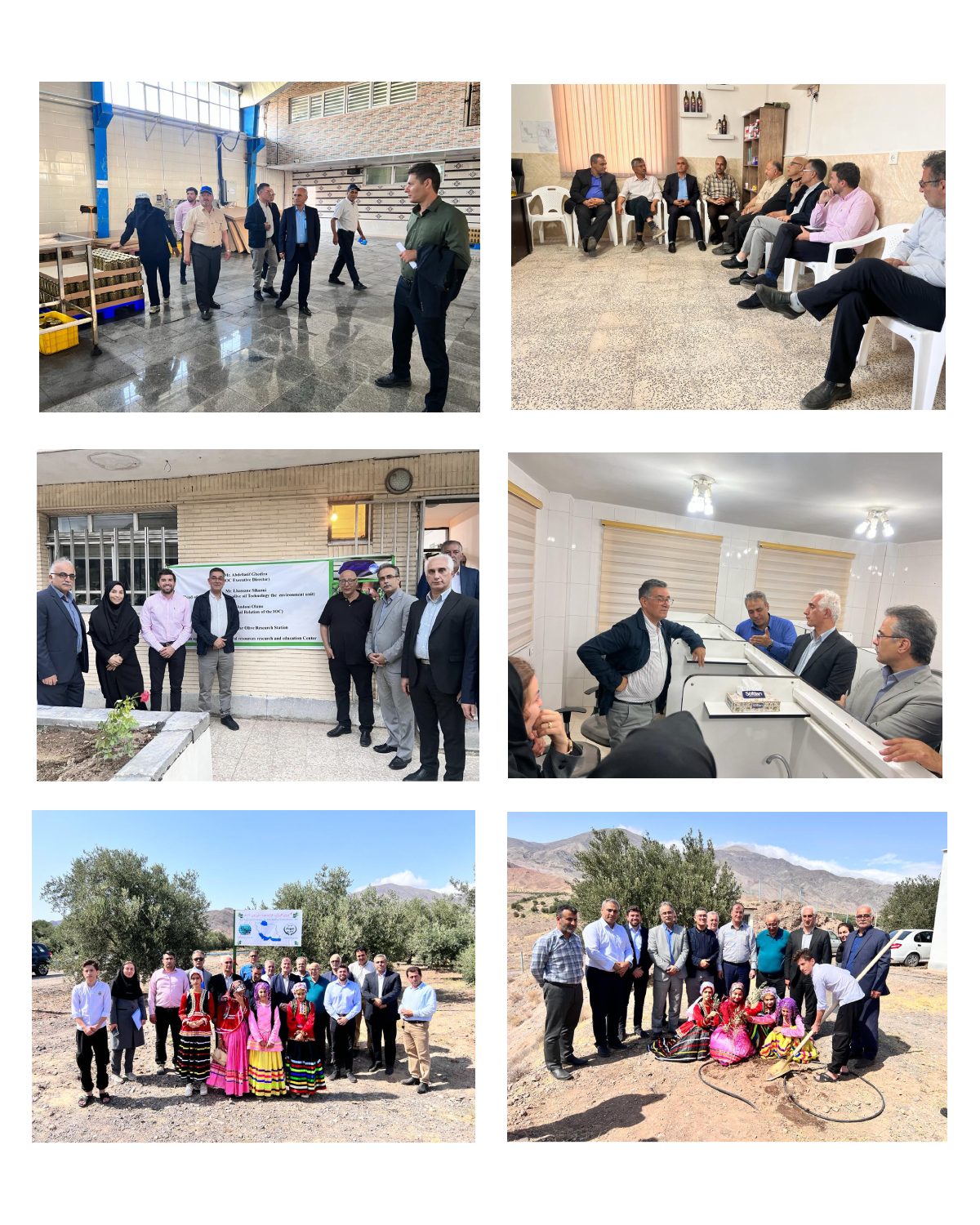 The IOC mission ended with a meeting with Mohammad Ali Nikbakht (Iranian Minister of Agriculture), Ali Chegini (Director General of Diplomatic Affairs), Mohammad-Mehdi Boroumandi (Deputy Minister of Agriculture of the Islamic Republic of Iran), Javad Mirararb (Head of the Iranian delegation) and Reza Zabib (Iran’s Ambassador to Spain).
The IOC mission ended with a meeting with Mohammad Ali Nikbakht (Iranian Minister of Agriculture), Ali Chegini (Director General of Diplomatic Affairs), Mohammad-Mehdi Boroumandi (Deputy Minister of Agriculture of the Islamic Republic of Iran), Javad Mirararb (Head of the Iranian delegation) and Reza Zabib (Iran’s Ambassador to Spain).
During the various meetings, IOC officials, the Iranian authorities and representatives of the national olive-growing sector were able to take stock of the prospects for olive-growing in Iran and the various possibilities for collaboration. In particular, they touched on the continuation of the work of the olive germplasm bank with a view to its recognition as an international bank in the IOC network of banks, as well as the organisation of regional seminars devoted to the challenges of olive-growing. The IOC Director encouraged Iranian associations to submit proposals for activities to promote olive oil and table olives with a view to obtaining grants for the organisation of events as part of the forthcoming World Olive Day.
The next presidency of the IOC, to be held by Iran in 2024, was also discussed. Under the International Agreement on Olive Oil and Table Olives, 2015, the Council of Members appoints a president for a one-year term from among the member delegations. In 2023, Iran will hold the vice-presidency, alongside Jordan, which will chair the Council of Members until 31 December. The President plays an essential role in the life of the Organisation and performs a number of functions, the most important of which is to chair meetings and sessions and to legally represent the IOC. The IOC Executive Director encouraged his interlocutors to prepare a programme to present the highlights of Iran’s presidency in 2024. He also proposed that a memorandum of understanding (MOU) setting out the objectives for 2024 be signed between the IOC and the Iranian Ministry of Agriculture. The next edition of the IOC’s official magazine, Olivæ, will be devoted to Iran and is due to be published in November, on the occasion of the 118th session of the Council of Members which will be held in Madrid and attended by, amongst others, the Iranian Minister of Agriculture will be attending. Finally, the Executive Director encouraged Iranian olive oil producers to submit their best extra virgin olive oils in the IOC’s international competition for the Mario Solinas Quality Awards. The Iranian authorities also announced the forthcoming inauguration of a Garden of Peace.
The Executive Secretariat would like to take this opportunity to thank the Iranian authorities and representatives of the olive sector, and in particular the Iranian Deputy Minister of Agriculture, Mohammad-Mehdi Boroumandi, as well as the Head of the Iranian delegation to the IOC, Javad Mirararb, for their welcome and hospitality, and for the excellent organisation of this mission.
